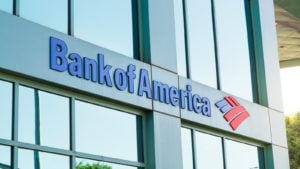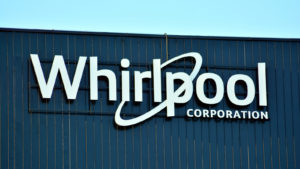Investors are finally getting some relief. After one of the quickest crashes in stock market history, the indices are starting to recover some lost ground. And a gigantic stimulus package has restored confidence in the economy. As a result, stocks have surged this week. The Dow Jones Industrial Average in particular has risen more than 20% from its March 23 low, meaning that it is technically in a new bull market. The rally has been broad-based, with many dividend stocks recovering sharply as well.
But let’s not get ahead of ourselves. Substantial aid from Congress and the Federal Reserve will certainly help the economy. But it’s not a panacea. We’re seeing an economic shutdown that is totally new territory. Past economic recessions occurred gradually, rather than starting all at once. As such, vulnerable companies could take a much bigger hit this time around.
If you want evidence of that, just look at the recently published jobless claims. For the week that ended March 21, a stunning 3.3 million Americans filed for unemployment. That topped the previous record — 695,000 claims — by nearly a five-fold margin. That previous record, by the way, was from way back in 1982. That means that even in the Great Recession we never had the sort of abrupt shock that we’re facing right now.
For investors, this is a good time to be looking at dividend stocks to sell into last week’s sharp rally. Particularly for conservative investors, it’s a great time to being thinking about your dividend stocks.
Why? We’re likely about to see a huge rush of dividend cuts as companies seek to conserve their cash. If you rely on dividends to cover your daily bills, this rally gives you a great opportunity to focus on improving your dividend safety.
Here are seven dividend stocks to sell before they potentially cut their payouts.
Dividend Stocks to Sell: Valero Energy (VLO)

Dividend Yield: 8.6%
I’ve seen some folks buying the refining stocks recently. The thinking is that these companies, unlike most other energy companies, are not directly tied to the price of oil and gas. Thus, they should be relatively insulated from the current shock in the oil and gas industry. It’s not a bad line of thinking.
In the short run, however, this thesis is not panning out. Demand for refined products (gasoline, asphalt, jet fuel) has gone off a cliff along with oil. With the economy effectively halted, there’s minimal demand for the end products that Valero (NYSE:VLO) makes either.
Valero recently cut production levels at many of its refineries. And the crack spread — the difference between the price of crude oil and end products such as gasoline — has plummeted. This is the margin that Valero and other refiners earn their profits based on, and it’s heading in the wrong direction.
It’s true that Valero has a solid balance sheet and will make it through this crisis alright. However, with profit margins down and the company cutting back production levels significantly, the company should try to conserve cash for now.
The dividend yield, currently 8.6%, would be an easy thing to pare back for the time being.
Wynn Resorts (WYNN)
Dividend Yield: 5.6%
Next on the list of dividend stocks to sell is Wynn Resorts (NASDAQ:WYNN), a gaming company caught in the center of the novel coronavirus. That’s because it derives the majority of its casino revenues from overseas, namely markets such as Macau. This led to a massive drop in gaming revenues for Wynn in February as the virus spread in that part of the world.
Macau’s overall gaming revenues, as a region, fell nearly 90% in February. Needless to say, any continued drop of close to that degree, and Wynn will miss prior earnings estimates for 2020 by a mile.
Now, you could make the argument that Wynn doesn’t need to cut its dividend. Prior to this crisis, Wynn Resorts had a dividend in the 2%-3% range. Even with the recent share price plunge, the yield is a moderate 5.6%. That said, it may still be best to conserve cash.
Look at peer Boyd Gaming (NYSE:BYD). It paid a dividend yield of just 2%. Yet it announced a dividend suspension this past week. With casinos shut for an undetermined amount of time, it’d be a roll of the dice to keep paying dividends at this point.
EPR Properties (EPR)

Dividend Yield: 18%
Like Wynn Resorts, EPR Properties (NYSE:EPR) is in the experiences space. However, as a real estate investment trust, EPR is the landlord on properties, rather than the operator.
Still, like casinos, EPR will face similar challenges. That’s because EPR’s tenants include movie theaters, ski resorts, private schools, water parks and golfing businesses. Needless to say, these are pretty much all shut down right now, and may remain so for quite awhile.
That’s true of quite a few REITs, however. So why the particular rush to sell EPR among other dividend stocks now? Because management is making a headstrong push to boost the share price. What’s going on? They announced that they drew down a major portion of their line of credit and are using it to, get this, buy back stock. In fact, EPR intends to buy back $150 million of its stock. That’s a massive chunk, given the current $2 billion market capitalization.
EPR only has a BBB- credit rating at the moment, meaning even a one-notch downgrade would make it a junk-rated company. Yet, in the face of many tenants closing down for who knows how long, management is spending borrowed cash to try to boost the share price.
If it works out, great. If not, the liquidity will run out even faster. EPR stock is currently yielding a jaw-dropping 18%. Sadly, that yield may end up leading folks into a massive value trap if management operates too aggressively while its tenants’ properties remain closed down for the duration of the virus.
Macerich (MAC)

Dividend Yield: 29%
There’s a whole bunch of REITs that will be cutting their dividends in coming months. EPR is hardly the only candidate. Look at any real estate owner with retail exposure, and you likely have a vulnerable dividend.
Perhaps none are more vulnerable than mall operator Macerich (NYSE:MAC). The company has high-end malls; few people dispute the quality of its assets. Its malls are loaded with quality tenants like Apple (NASDAQ:AAPL) and Tesla (NASDAQ:TSLA).
That said, the company took on too much leverage, and as a result, its stock price was down by 75% in recent years, even before the coronavirus hit. Now, with the virus, shares have fallen even more as people are no longer going out shopping.
Macerich cut its dividend by a third recently. But this was hardly enough; the dividend yield is still a preposterous 29% after that reduction. At this point, Macerich is a $6 stock that is supposedly going to pay $2 in cash and stock dividends every year. That simply makes no sense.
And now tenants are defaulting on their landlords due to the virus. Even giant national restaurant chains are defaulting. The Cheesecake Factory (NASDAQ:CAKE) told its landlords that it won’t be paying rent for at least the month of April, even though it seemingly had adequate financial capacity to do so. These sorts of strikes could be the final blow for ailing Macerich.
Invesco (IVZ)

Dividend Yield: 13%
Asset manager Invesco (NYSE:IVZ) is one of the global leaders in money management. As of February, it managed more than $1.1 trillion dollars, spread across stock funds, bond funds and alternative investments. And until recently, it seemed like an intriguing, if somewhat risky, 7%-yielding stock.
With the stock market crash, however, Invesco has gotten cut in half. Now it’s a 13%-yielding stock that at is at grave risk of a dividend cut.
Keep in mind that asset managers’ earnings are driven by market performance. When stocks go down, for example, asset managers tend to get hit twice. One, they get to charge fewer fees as the value of their assets under management has declined. Second, investors tend to pull money out of funds rather than contributing during market declines. Outflows plus declining stock prices makes for a toxic mix.
Invesco’s assets under management fell more than 4% in February while markets were only just starting to slide. March’s figure could be awful.
On top of that, some of Invesco’s alternative funds have run aground this month. The Invesco Mortgage Capital REIT (NYSE:IVR), for example, lost more than two-thirds of its value in March after its assets plummeted in value, leading to margin calls. This not only hits Invesco’s income stream, it’s also a blow to the firm’s brand.
At this point, Invesco’s excessive dividend yield is doing little to support the stock price, and management may well choose to reduce the payout to a more sustainable level.
Bank Of America (BAC)
Dividend Yield: 3.3%
Not surprisingly, investors are becoming increasingly concerned about the safety of the financial system. Most people remember 2008, where banks were the center of that financial crisis.
But things shouldn’t be that bad for the sector in 2020. The banks are much better capitalized this time around, plus, in most parts of the country anyway, there hasn’t been a housing bubble like there was in 2008.
That said, the banks are certainly going to take some hits. Energy lending is a treacherous field right now, given the collapse in oil and gas prices. Most of the national banks have at least some exposure to energy loans, or loans in states such as Texas and Oklahoma that are dependent on the oil and gas economy. And now the coronavirus is threatening many more loans.
How many people won’t pay rent for a few months? How many small businesses will fail?
Already, we’re seeing action for the banks. The Federal Reserve encouraged banks to suspend their buyback programs for the time being, and many have done so. Could dividends be next in the line of fire? If loan losses get bad enough, it could certainly be on the table.
To that end, watch Bank of America (NYSE:BAC) in particular. California just negotiated an agreement with major national banks to provide mortgage waivers for the next 90 days. The only holdout? Bank of America, which was only willing to grant 30 days of relief. These sorts of moves sometimes signal bigger problems. If a major bank cuts its dividend soon, don’t be surprised if it’s Bank of America.
Whirlpool (WHR)
Dividend Yield: 5.8%
The appliance maker Whirlpool (NYSE:WHR) has become a big dividend payer as well. And now it’s the perfect fit for this list of dividend stocks to sell. As Whirlpool stock has lost nearly half its value over the past few weeks, the stock’s dividend yield has now climbed to nearly 6%.
However, management may decide to trim the dividend. The company has experienced serious supply chain issues. Don’t forget that it has moved much of its production out of the U.S., leading to more complexity. The coronavirus has exposed weaknesses in logistics for such multinational firms.
As a result, Whirlpool withdrew its previously established guidance for the year. It also borrowed $2.2 billion from its credit lines to shore up its liquidity position.
In the face of these challenges, a dividend cut might be a prudent move to conserve the company’s cash.
Ian Bezek has written more than 1,000 articles for InvestorPlace.com and Seeking Alpha. He also worked as a Junior Analyst for Kerrisdale Capital, a $300 million New York City-based hedge fund. You can reach him on Twitter at @irbezek. At the time of this writing, he held no positions in any of the aforementioned securities.



